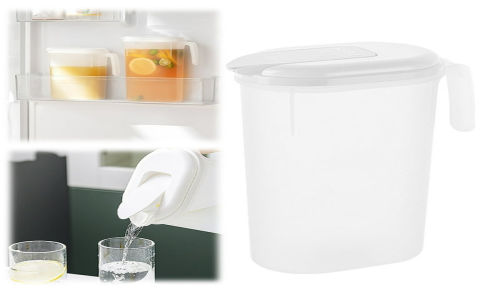There’s nothing quite as refreshing as a cold glass of lemonade on a hot day. Whether it’s freshly squeezed or store-bought, lemonade is a popular and delightful beverage enjoyed by many. Yet, one question often arises for lemonade enthusiasts: How long can lemonade last in the fridge? Understanding the shelf life of lemonade can help ensure that every sip remains as delicious as the first.
Lemonade is primarily made from lemons, water, and sugar, each having a distinct impact on its longevity. Freshly squeezed lemonade, with its natural ingredients, tends to have a shorter shelf life compared to its commercially produced counterparts. When stored properly in the fridge, homemade lemonade can typically last about 5 to 7 days. It’s essential to keep it in an airtight container to minimize exposure to air, which can lead to spoilage.
Commercially prepared lemonade, on the other hand, often contains preservatives that extend its lifespan. These drinks can stay fresh for a longer period, sometimes up to 2 weeks once opened, as long as they’re kept chilled and sealed. Always check the "use by" date printed on the packaging, as this is a good indicator of when the lemonade is expected to retain its best quality.

Regardless of its origin, the key to prolonging the life of lemonade is proper storage. Avoid placing it in the fridge door, as the temperature can fluctuate significantly in that area. Instead, store it on a shelf where the temperature remains more stable. This helps in preserving both the taste and the safety of the drink.
Lemonade that has gone bad is generally easy to identify. If you notice an off-smell, a strange taste, or visible changes such as cloudiness or mold, it’s best to discard the beverage. Consuming spoiled lemonade can result in an unpleasant taste and potentially cause stomach discomfort.
Lemons, the main ingredient in lemonade, are rich in vitamin C, making them not only tasty but also beneficial to health. Vitamin C is known for its immune-boosting properties. However, prolonged storage can lead to a degradation in nutrient value. For those looking to get the most out of their lemonade, consuming it within the first few days of preparation is ideal.
To enhance the enjoyment of your lemonade while maximizing its freshness, consider these additional tips. Use clean utensils every time you pour a glass to prevent bacterial contamination. Additionally, adding a pinch of salt can act as a natural preservative, further extending the drink’s life. Freezing lemonade is also an effective way to preserve it for an extended period; just be sure to store it in a freezer-safe container.
If you’re keen on experimenting, making lemonade in smaller batches ensures that it stays fresh and tasty without the risk of spoilage. This approach not only guarantees a consistently delightful experience but also gives you the opportunity to adjust the recipe to your liking. Whether it’s adding mint leaves for an herbal twist or mixing in strawberries for a fruity punch, the possibilities are endless.
Ultimately, understanding how to store lemonade properly is as important as making it. With simple precautions and tricks, you can continue to enjoy the refreshing taste of lemonade long after it’s made. Whether purchased or homemade, a well-kept lemonade can remain a delightful treat in your fridge, ready to quench your thirst at any moment. Embrace these tips, and ensure that your next glass of lemonade is as perfect as the first.













